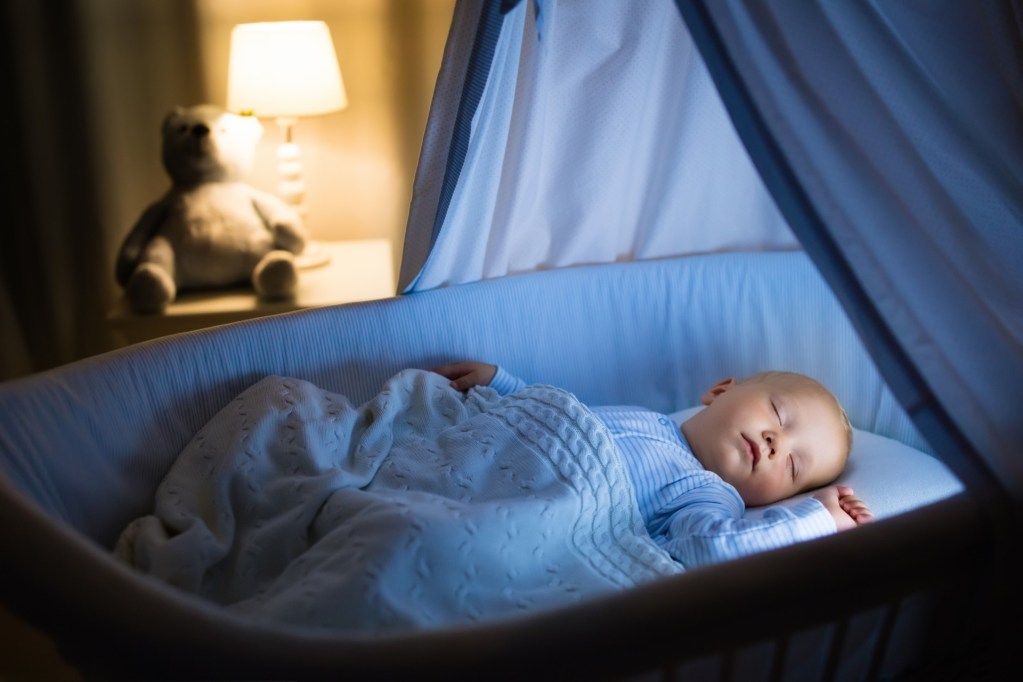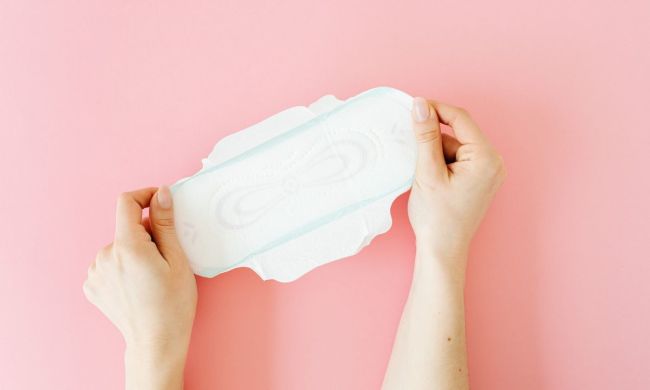When you have a baby in the house you know how precious a few moments of uninterrupted sleep is and you’ll do whatever works to get your little one to sleep. If you’ve been looking for efficient solutions to sleep-training, then it might be time to consider an automatic rocking bassinet.
An automatic rocking bassinet is like a gentle hammock or swing for your little one. With features like soft gliding motions, vibrations, songs, and more, they’re becoming more popular with parents and parents-to-be. If you’ve been wondering if it’s worth the investment, we’ve got all the information you need. We’ll go over some very persuasive reasons why they’re worth buying and important features you might look for.

How do automatic rocking bassinets work?
Automatic bassinets make naps and nighttime sleeping much easier for the whole family. By providing soothing movements and sounds, your little one can drift off to sleep willingly. Some common models are swinging bassinets, rocking bassinets, and vibrating bassinets.
More advanced types even imitate the feeling of riding in a car or being in a womb. In a nutshell, automatic rocking bassinets keep your baby comfortable so they can rest easy.
They’re typically plugged into an outlet, though some portable models are battery-operated. Keep in mind that separate parts like music machines and mobiles might also need batteries.
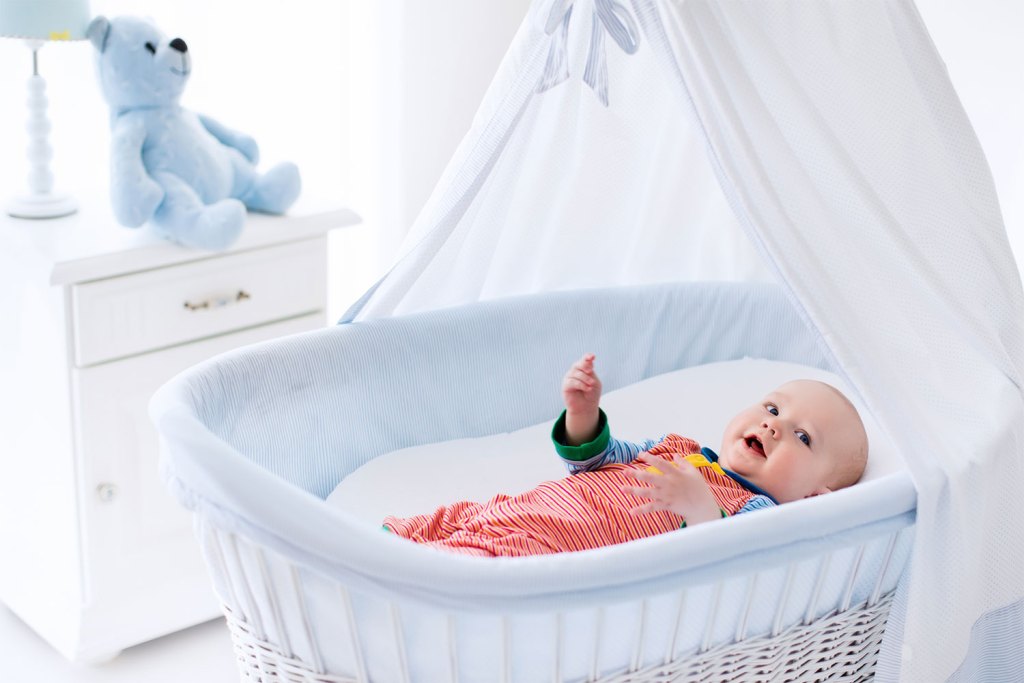
What features should I look for in a smart bassinet?
The good news is there’s probably a smart bassinet out there for your exact needs. Here are some key features that many parents recommend.
- Adjustable swing speeds.
- Removable mobile.
- Set timer option.
- Built-in sound machine with soothing sounds or songs.
- Option between gliding or swinging.
- Option between different swinging directions.
- An adjustable canopy for shade.
- A detachable feature that converts the top to a handheld basket.
- Lockable caster wheels for portability.
- Car motion setting.
- A frame that converts into a crib.
- Bottom storage for baby supplies.
- A soft, waterproof mattress.
- Included tight sheets.
- Built-in night light.
- Option between USB, battery, or outlet plug-in.
- Mesh sides for visibility.
- Harness for nap-only bassinets.
As you can see, there are lots of features that make automatic bassinets so great. Of course, you can pick and choose which ones will help your family specifically. For instance, if you’re driving every night to get your baby to sleep, a car motion bassinet makes sense. On the other hand, if you want a functional bassinet that also helps save space, choose one with bottom storage to keep extra diapers and wipes.
Since babies and their needs are always growing, a combination of the features above is also practical.

They help make the transition from the womb easier
Being born can be hard on a newborn baby, which is why an electronic bassinet can be so soothing for them. The constant motion and specially designed sounds are meant to remind your baby of being in the womb, making their transition easier. A comfortable baby often means a baby that will sleep more soundly and for longer stretches, which is so helpful for tired, new parents. These often help soothe your baby when you need to put them down for small stretches of time to do other chores around the house as well.
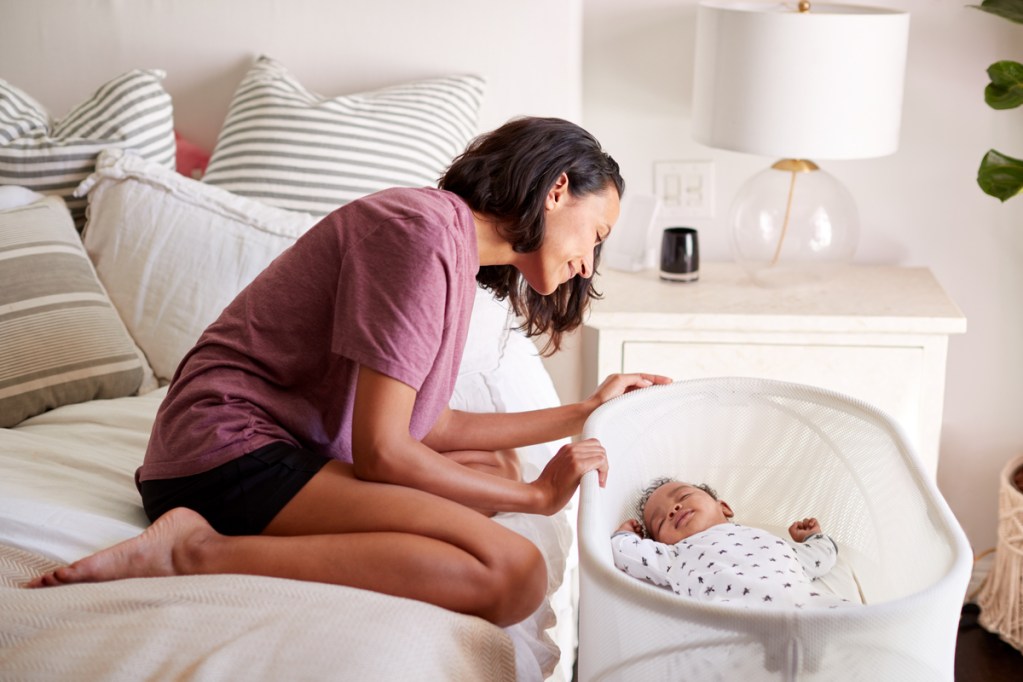
Will a smart bassinet actually help my baby sleep better?
If your little one loves to be held or loves nodding off while you hold them in your rocking chair, a smart bassinet will help your baby sleep better. If your little one likes to sleep on their own but often wakes up from naps and sleeps prematurely, a smart bassinet might help.
So, is purchasing one of these machines a good idea?
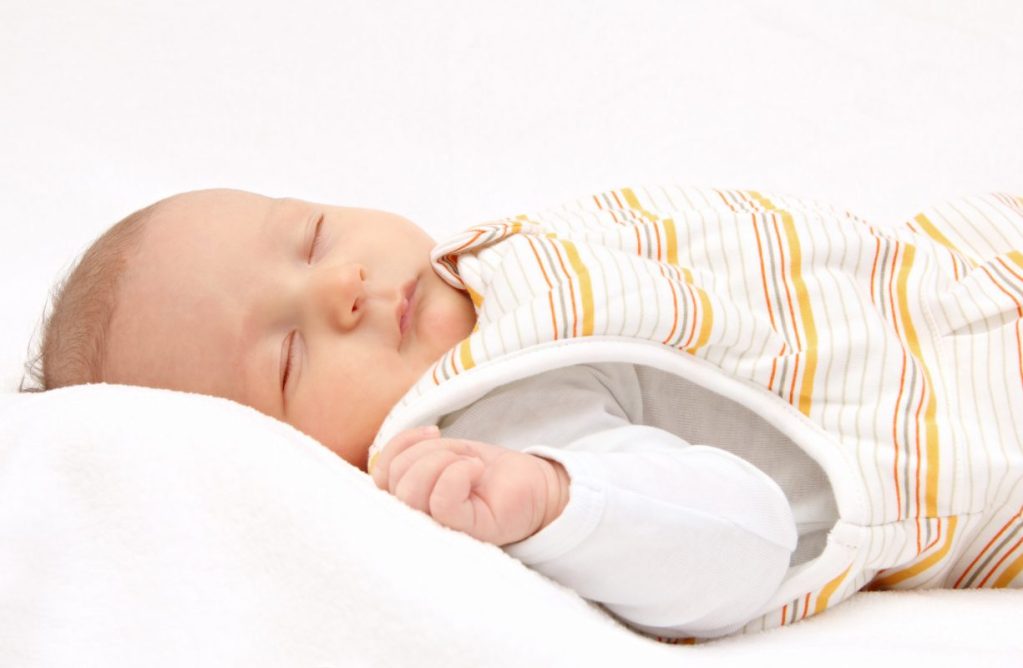
The answer is …
Yes, you should get an automatic rocking bassinet for a few reasons. Here are more arguments for an automatic bassinet.
Saves your back from constant carrying and rocking. An auto bassinet will help ease the strain on your body while your child is in the infant stage.
- An automatic rocking bassinet promotes important self-soothing skills. Instead of crying out for you every time your little one needs help getting to and falling back to sleep, a gentle swaying, rocking, or gliding motion encourages them to wind down without your assistance. This means a fiercely independent kid in the making!
- Many bassinets convert into portable baskets you can take around the house or a picnic at the park. This dual function saves you from having to get a separate foldable bassinet.
- Most models have a built-in sound or music machine. Choose from gentle womb sounds to soft piano lullabies when your precious one needs a little extra comfort.
- You’ll get more rest with an automatic rocking bassinet. For parents whose little ones get extra cranky during nap time, this is the answer to some of your problems. Moreover, this is ideal for parents whose babies prefer to be held during naptime or sleep time.
- This will help give you time while your little one is catching some Z’s.
- Bassinets are less clunky than beds, and some even convert to minimalist cribs when your infant grows into a toddler.
- When it comes to sleep, your infant needs lots of it. Help them get the most restful sleep with an automatic rocking bassinet. These swinging, gliding, vibrating, and singing machines are especially helpful if you spend the majority of your day comforting your infant before, during, and after they fall asleep. Save yourself and your little one from tears and try one out today — you might be surprised at the difference it makes!
